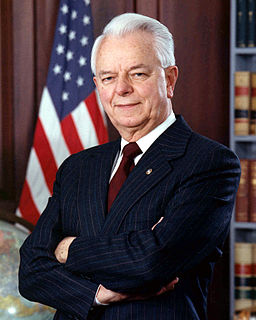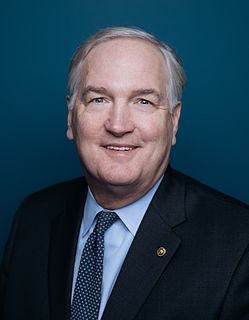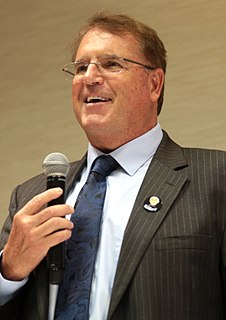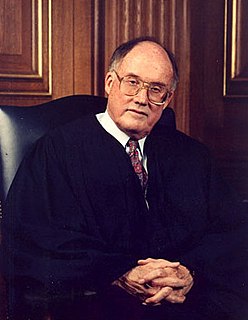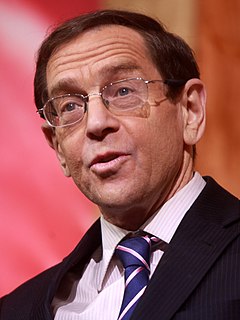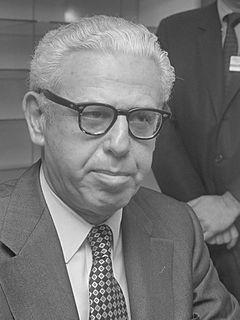A Quote by Robert Byrd
It was the separation of powers upon which the framers placed their hopes for the preservation of the people's liberties. Despite this heritage, the congress has been in too many cases more than willing to walk away from its constitutional powers.
Related Quotes
I believe that the power to declare war is most important in limiting the powers of the national government in regard to the rights of its citizens, but that it does not require Congress to give its approval before the president uses force abroad. I do not believe that the framers of the Constitution understood the power to declare to mean "authorize" or "commence" war. That does not mean that the separation of powers or checks and balances will not work.
Particularly when the war power is invoked to do things to the liberties of people, or to their property or economy that only indirectly affect conduct of the war and do not relate to the engagement of the war itself, the constitutional basis should be scrutinized with care. ... I would not be willing to hold that war powers may be indefinitely prolonged merely by keeping legally alive a state of war that had in fact ended. I cannot accept the argument that war powers last as long as the effects and consequences of war for if so they are permanent -- as permanent as the war debts.
The founders understood that democracy would inevitably evolve into a system of legalized plunder unless the plundered were given numerous escape routes and constitutional protections such as the separation of powers, the Bill of Rights, election of senators by state legislators, the electoral college, no income taxation, most governmental functions performed at the state and local levels, and myriad other constitutional limitations on the powers of the central government.
It is impossible to build sound constitutional doctrine upon a mistaken understanding of Constitutional history... The establishment clause has been expressly freighted with Jefferson's misleading metaphor for nearly forty years... There is simply no historical foundation for the proposition that the framers intended to build a wall of separation... The recent court decisions are in no way based on either the language or intent of the framers.
Many, if not most, of the difficulties we experience in dealing with government agencies arise from the agencies being part of a fragmented and open political system…The central feature of the American constitutional system—the separation of powers—exacerbates many of these problems. The governments of the US were not designed to be efficient or powerful, but to be tolerable and malleable. Those who designed these arrangements always assumed that the federal government would exercise few and limited powers.
I say we should praise Donald Trump for existing and for winning, because it has woken people up. For many years, I have been trying to say to Europeans, and especially to Americans, that Vladimir Putin is a problem for the world. And they have swatted me away. "It's your problem, we have our democracy." Suddenly, because of Trump, they are learning about separation of powers, independence of the judiciary and that Ronald Reagan was right when he said, «Freedom is never more than one generation away from extinction».
It is fundamental that the great powers of Congress to conduct war and to regulate the Nation's foreign relations are subject to the constitutional requirements of due process. The imperative necessity for safeguarding these rights to procedural due process under the gravest of emergencies has existed throughout our constitutional history, for it is then, under the pressing exigencies of crisis, that there is the greatest temptation to dispense with fundamental constitutional guarantees which, it is feared, will inhibit governmental action.
